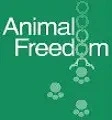| In this article, it is argued that the term "intrinsic value" does not contribute effectively to the case of animal rights. While every animal (every living being) indeed possesses intrinsic value, the same can be said for every grain of sand (every non-living being). Something that applies to everything is most likely without value. Freedom is an inherent value to which every living being in nature is entitled. |
| A single coin will increase in value as a collector's item once it is taken out of circulation.
This also seems to apply to animals.
An animal is given extra intrinsic value once it threatens to become extinct.
However, the larger the number of a certain species and the more maltreatment it receives, the less intrinsic value the animal deserves, so it seems.
The total of all 450 million factory animals in the Netherlands seem to have less intrinsic value than the panda in China.
The intrinsic value of animals implies that they have their own value, apart from their financial, instrumental and practical value, attributed by humans.
The question is whether man is able or willing to keep those issues separated. |
Intrinsic value: empty words?
Since the adoption of the Animal Protection Act in 1981, the Dutch Government has acknowledged the concept of the intrinsic value of the individual animal.
The Health and Welfare Act describes the term in the following words: 'acknowledgment of the intrinsic value of animals means that animals have value in their own right and as a consequence their interests are no longer automatically subordinate to man's interests'.
According to government policy, the purpose of animal protection law is to improve conditions to ensure that the animal is protected from human actions that threaten its well-being. |
| Since its inclusion in Dutch legislation the term has been embraced by animal
rights activists. The fact that so many have accepted
the term and that conditions for animals have only deteriorated
instead of improved, should arouse suspicion in all animal protectionists.
We all pretend to know what is meant by intrinsic value.
It sounds interesting enough and we let it speak for itself,
not really understanding what we are talking about. The
term is gratefully used by the interested parties in the
factory farming business and by politicians. Talking is
cheap when speaking of animals in terms of their intrinsic
value. Their words about intrinsic value does nothing
to help improve the animals' living conditions. Their
words are empty, seemingly in the interest of animals. |
Value and right are unrelated
Rights of individuals (man or animal) should not decrease
or increase in relation to their value, be it in terms
of money, indispensability or intrinsic value. Even
if a person should consider their own life worth next
to nothing, this person's rights would be equal to that
of a person with a high self-esteem.
Our law does not acknowledge an animal as a legal body
and thus there is in principle no difference between
an animal and an object. The value of an object may
vary from zero to priceless. The introduction of the
concept of intrinsic value would possibly lead to preventing
the animal from becoming extinct and from being possessed
as an object. |
| It is in our nature to focus on high priority issues and to ignore
insignificant matters. Likewise people tend to consider
living beings worthless that are found to have little
intrinsic value. Factory farming is a situation where
large numbers of animals are sure to have diminished
intrinsic value. |
Freedom is a better basic principle of animal rights
The concept of intrinsic value is beyond our powers
of imagination. In other words, it is not what you think
it is. Intrinsic value constitutes an impracticable basic
principle of animal rights. |
| There is a certain analogy to religion. You cannot persuade a person to
believe in God on the strength of rational arguments.
People with the same faith usually succeed in reaching
agreement on the practical implications. However, there
is no legal consensus on faith. Likewise, there is no
unequivocal definition of intrinsic value to make it
legally disputable in a court of law. Intrinsic value
is a vague and therefore impracticable term as a fundament
of animal rights. Finally and this is a serious objection:
it is a type of circular
reasoning. People will always (unconsciously) object to this. |
| It would only be appropriate to use the term when trying to save rare
or nearly extinct animal species or Nature itself.
It is a much better idea to base the interests of animals
on the universal right of freedom for both man and animal. Would people accept the
idea of basing human rights on their human value?
Why found animal rights on other concepts than human rights? |

